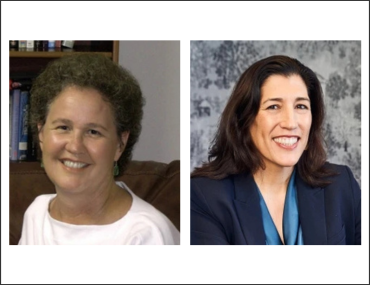On October 22, Educator Preparation Laboratory (EdPrepLab), an initiative led by Bank Street Graduate School of Education and the Learning Policy Institute to strengthen teacher and leader preparation, hosted its annual Fall Forum. The virtual gathering brought together members of the EdPrepLab network to explore how amplifying evidence-based practices and the Science of Learning and Development (SoLD) in educator preparation can help shape policy and advance the field of education.
This year’s program highlighted the significant challenges and opportunities facing educator preparation, focusing on the urgency of this moment and how collective action can help strengthen equity and evidence-based practice in education. The forum, which convened 79 EdPrepLab network members representing teacher and leader programs from across the nation, provided an opportunity for the community to connect, share insights, and deepen their understanding of research-informed approaches that support more effective teaching and learning.
“Since launching in 2019, EdPrepLab has demonstrated the power of operating at the nexus of policy, research, and practice, utilizing SoLD as an encompassing framework to guide and center advocacy for children and educators,” said Jessica Blum-DeStefano, Leadership Faculty, Bank Street Graduate School of Education, and Director of Practice and Professional Learning, EdPrepLab. “We are grateful for all the members attending our Fall Forum and appreciate their ongoing participation, engagement, leadership, and brilliance in this space.”

The event began with an inspiring fireside chat featuring Linda Darling-Hammond, Chief Knowledge Officer and founding President and CEO, Learning Policy Institute, and Elena Silva, current President and CEO, Learning Policy Institute, who shared insights as longtime leaders and experts in educator preparation and policy.
Moderated by Blum-DeStefano, the conversation examined the historicized resilience of educators in complex times, the significance of SoLD-aligned research and practice, and the value of collectivity in the profession.
Darling-Hammond explained, “The brain is very plastic, and it continues to develop throughout life. … Brain development happens as a result of relationships and experiences: The relationships and experiences we have are very important to the development of neural networks in our brains, and that is what school needs to be about. We know that we learn better in contexts where we feel safe and secure and where we have experiences that stimulate curiosity and inquiry.”
Building on these ideas, Silva spoke about the challenges of translating this growing knowledge and evidence base into practice and policy. “We need to make sure that people are aware that there is this foundation of evidence—a growing foundation of evidence—around the Science of Learning and Development. … Part of the challenge is to point to it in ways and to audiences where it resonates and can be disseminated,” she said. “Helping people understand what that means in practice. What does that look like in classrooms and schools? ”
Silva further noted questions policymakers might consider in applying these insights: “How do I design my system? How do I think about how I spend my resources or distribute my resources? How do I think about the immediate needs that I’m dealing with as a policymaker, or that I’m being asked to deal with as a policymaker?”
After the fireside chat, participants continued the conversation through an interactive activity in which they shared reflections and inspiration around educator resilience; strategies for preparing educator candidates to navigate and address current challenges; examples of SoLD-aligned research for this moment; and voices and stories to listen to, learn from, and share; as well as questions and comments for the speakers.
One attendee described a scenario exercise designed to help leadership candidates navigate complex dilemmas, such as book bans and threats to LGBTQ+ communities. Another attendee highlighted the voices of immigrant communities who are unsure if public schools will continue to be safe spaces for their children. Attendees also shared new book recommendations and other resources.
Next, EdPrepLab leadership discussed the network’s progress and milestones, noting that it has grown to 27 member institutions with plans for further expansion over the next three years. Leaders also provided updates on policy engagement, highlighting ongoing shifts in state and federal policy, and shared information on programming, new seed grants, and publishing opportunities for members.
The event concluded with breakout sessions on timely topics, such as pedagogy and curriculum, technology and AI, and building policy capacity, among other areas.
To learn more about EdPrepLab, visit the EdPrepLab website